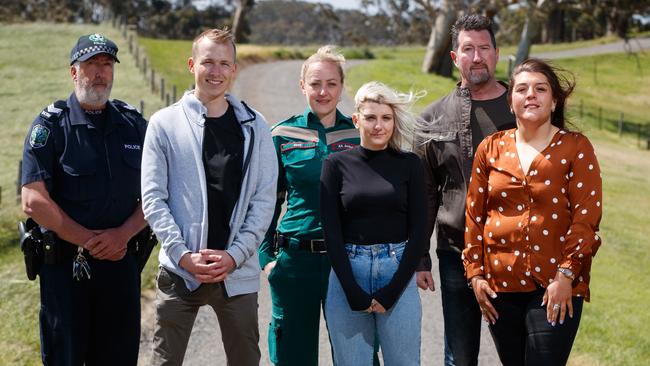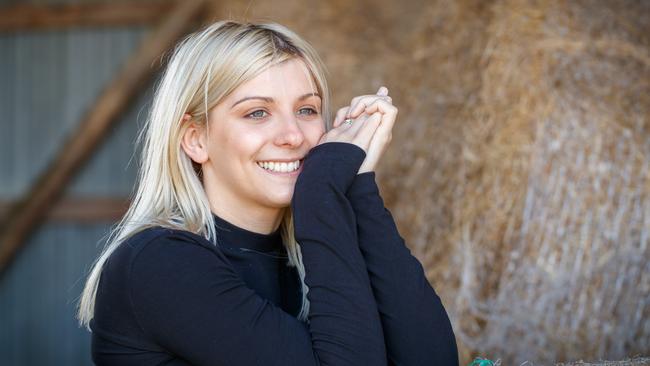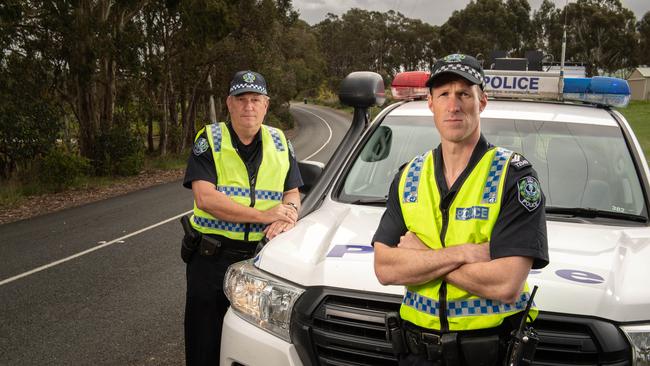Driven Chapter 7: Road crash survivor Holly Scott’s vivid reminder of life’s value
Road crash survivor Holly Scott has the word alive tattooed on her wrist as a reminder of the day her life changed forever – it’s a sentiment she hopes all motorists remember.
SA News
Don't miss out on the headlines from SA News. Followed categories will be added to My News.
- Driven: Watch the full documentary series this week
- Subscribe to support independent journalism in SA
The word “alive” tattooed on her wrist is an emotional reminder to Holly Scott that she is lucky to be a survivor.
The 24-year-old almost died in a horrific car crash in the Adelaide Hills two years ago.
She still lives with the challenges of her brain injury and knows her life will never be the same again.
The tattoo and a collection of photographs documenting her long road to recovery keep Ms Scott mindful of the mission she has chosen – to be a warning to others.
The photographs are included in advertiser.com.au’s groundbreaking video series, Driven, in partnership with SA Police and the Lifetime Support Authority.
The seven-part series follows Ms Scott’s long and painful journey, starting with the chaos and tragedy in the moments after her car slammed into a tree on Diggings Rd, Echunga, on July 2, 2017.

From there, it takes in the stories of all the people needed to help her survive the tragedy – from the first responders to the team of therapists and her family and friends.
Ms Scott said she was using the documentary series to share the often under-reported story of the painful recovery after a crash.
“Early days in my accident, I needed someone to look up to … on social media, I started following all those inspiring people and (they) inspired me. I want to be that (person) for someone,” she said.
“I want to be there for someone like me so I could show them that it’s OK.
“I found some good out of something so bad.”
The road toll, to Ms Scott, is no longer just a number.
“I know I’m not invincible, no one’s invincible on the roads,” she said.
“A car accident can happen, it can change your life, it can change your life so quickly and so easily.
“It changed my perspective on life, made me realise who I want to surround myself with, what I want to do with life.”
Ms Scott is attending university part-time with hopes of getting a job in the disability sector later.
She looks forward to a meaningful – but changed – future.

Driving again
Ms Scott, by all accounts, has surpassed expectations with her recovery.
But it has not come easy, with one of the hardest tasks getting behind the wheel again – a skill she knew she would need to be independent.
Brain Injury SA psychologist Ed Weaver said Ms Scott was anxious at the prospect of driving and took small progressive steps over months – starting with sitting in the back seat, then the passenger seat, turning the car engine on before finally driving solo to her appointments.
Ms Scott said she still struggled driving at night, long distances or near her boyfriend’s house, where she crashed.
Family support
Ms Scott credited her family and boyfriend Johnny Zehle for her road to recovery.
Mr Zehle admitted the crash and the long rehabilitation process “took a toll” on their relationship.
“I think we’ve sort of lost the honeymoon stage … lost the initial part of (the relationship) doing all these crazy adventures and thrown into quite a dark spot really quick,” he said.
But the couple were there for each other through Ms Scott’s big and small wins, even achieving their plans of cycling in Germany a year after the crash.
Her dad, Richard Scott, wanted every parent to consider giving their children defensive driving courses and “every driving experience as you can”. “I’m a lot more aware of other road users and hazards that could pop up,” he said.

Road safety
SA Police Major Crash section investigates about 150 of the most serious road crashes every year.
At the Royal Adelaide Hospital, each month on average, about 60 drivers, passengers, motorcyclists, bike riders and pedestrians come through the emergency department doors after motor vehicle accidents.
Last year, 12 road crash patients – or one a month – did not survive after getting to the RAH.
Retired Major Crash officer Wayne Liebich said decades of investigating road crashes demonstrated to him “how fragile life is and how for granted we all take it”.
“Once the car’s out of control, the driver is the passenger and has no control over what the car does. Physics takes over,” he said.
“The hardest part of my job in all of these is telling the family. “You go to deal with the family, you can’t let emotions get in the way of what you’re about to do because we’re there to support them. Not the other way around.”
This year, 103 lives have been lost on SA roads – and 103 families are dealing with the loss of their loved ones this Christmas.
Hundreds more were seriously injured in road collisions this year.
Ms Scott, who did not break any road rules when she crashed, has a stern warning for all road users.
“I was doing the right thing and it still happened to me,” she said.
“Apparently if I had 20 minutes more in that car, I wouldn’t have survived.
I think you need to go through a near-death experience or something traumatic … to realise how fragile life is.”


